It seems like every time you turn on the news these days, another company is being accused of racist or sexist advertising material. Are companies and ad agencies really being that insensitive, or have we, as a society, become a bit thin-skinned; looking to make anything, no matter how trivial, a matter of discrimination? Either way, in addition to the numerous governmental regulations that product distributors and marketers have to abide by when advertising and labeling a product, the feelings of eggshell consumers are now likely another box that needs to be checked.
The Kellogg Company was the latest brand to be roasted by consumers for allegedly promoting racist stereotypes in a cereal box cartoon that displayed a lone brown janitor corn pop cleaning the floor of a shopping mall full of yellow corn pops who appeared to be enjoying themselves. Consumers were quick to smear Kellogg for this supposed portrayal of race and status, but was it really warranted? If you just glance at the cartoon, the yellow pops appear to be a bunch of ill-behaved, nude delinquents, with dilated pupils that lead us to question whether they were enjoying a different kind of “puff.” On the other hand, the brown corn pop is the only one who is being productive and wearing clothes. He (she?) is also the only one actually smiling. We liked the brown corn pop. Obviously, not everyone felt the same, and we certainly understand how this cartoon could be considered offensive.
Similarly, Unilever came under attack for its ad that portrayed a black woman’s skin undergoing a transformation to a white woman following the use of Dove soap. For many, this evoked a long-running racist allegory in soap advertising: a “dirty” black person cleansed into whiteness; so much so that Unilever removed the ad and issued extensive apologies. However, the African American actress who appeared in the commercial supported it by saying that it was not racist, but rather, celebrated ethnic diversity.
While avoiding the use of imagery or notions generally known to be discriminatory is advisable, interpretation of an advertisement is subjective and thus, it is hard to please everyone. Likewise, when it comes to marketing and labeling guidelines as defined by entities such as the FDA and FTC, there are black and white do’s and don’ts, as well as gray areas as to what can and cannot be said.
Product marketers and distributors may not be able to anticipate what may or may not be offensive in every scenario, nor can they please every consumer, but with the help of a knowledgeable attorney, they can ensure compliance with federal and state regulations. If your company is launching a product or creating new ad content, be sure to hire counsel with experience in federal advertisement and consumer protection laws.
Please email us if you have any questions or if you would like more information regarding the content above.


